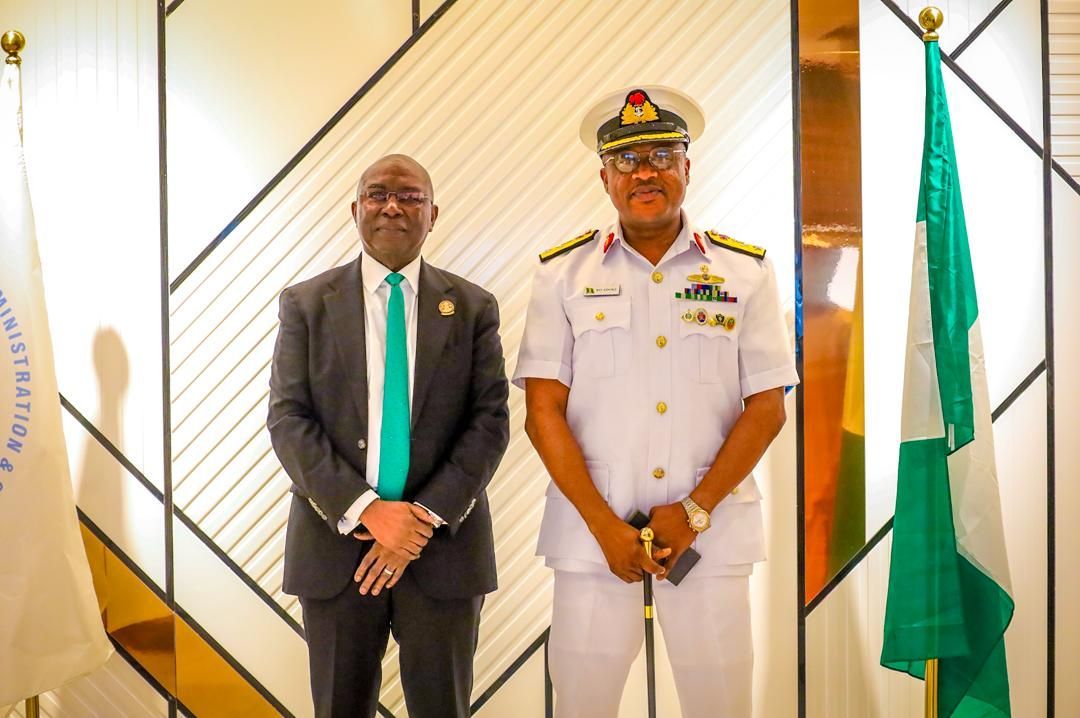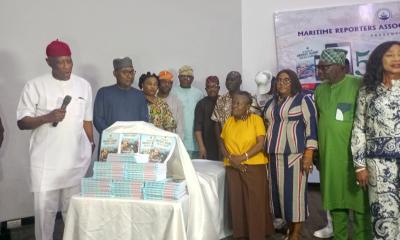Headlines
NIMASA embarks on digital revolution to plug revenue leakages, enhance optimum operations

— spurns smear campaign against the process
“To set the records straight, following a comprehensive internal review of operational systems, the current leadership of NIMASA resolved to embrace technology as a means of enhancing the Agency’s capacity to deliver on its regulatory mandate more effectively and to bring into the coffers of government additional revenue ensure funds due government does not end up in private hands.
“A pivotal innovation in this regard is the Maritime Enhanced Monitoring System (MEMS).
“The additional recipients targeted are, waste reception services, a routine operation for both domestic and international vessels have traditionally lacked proper tracking, resulting in unmonitored activities and significant revenue losses.
“Marine pollution control, another critical area of NIMASA’s mandate, has similarly been constrained by limited digital tools. In the absence of satellite tracking and automated reporting, pollution events often go unnoticed or are reported too late to mitigate their impact.
“It is important to emphasize that past revenue shortfalls experienced by the Agency mainly stemmed from outdated manual processes, fragmented data systems, and insufficient digital enforcement mechanisms which allowed some external elements to capitalize on the loopholes for personal gains .
“The current reforms being implemented by NIMASA are focused squarely on overcoming these limitations.
“The public is therefore advised to disregard the misleading reports and instead support NIMASA’s transformation journey as it aligns with the broader national objectives of the Ministry of Marine and Blue Economy under the Renewed Hope Agenda of President Bola Ahmed Tinubu
“The Agency remains committed to strengthening Nigeria’s maritime governance, ensuring environmental safety, and optimizing revenue for the nation.
“It is worthy of note that the Deep Blue Project of the Agency which now enjoys global recognition also witnessed such resistance at the initial stage” the agency noted.
Headlines
NIWA partners ICPC to strengthen internal transparency in its operations

Headlines
Navy appoints new Maritime Guard Commander for NIMASA

Commodore Adoki, a principal Warfare Officer specializing in communication and intelligence, brings onboard 25 years experience in the Nigerian Navy covering training, staff and operations.
Welcoming the new MGC Commander to the Agency, the Director General, Dr Dayo Mobereola, expressed confidence in Adoki’s addition to the team, emphasising that it will further strengthen the nation’s maritime security architecture given his vast experience in the industry.
The Maritime Guard Command domiciled in NIMASA was established as part of the resolutions of the Memorandum of Understanding (MoU) with the Nigerian Navy to assist NIMASA strengthen operational efficiency in Nigeria’s territorial waters, especially through enforcement of security, safety and other maritime regulations.
Customs
Customs collects N1.585 trillion from 51 compliant traders under AEO programme

-

 Headlines3 months ago
Headlines3 months agoEx-NIWA boss, Oyebamiji, emerges most media-friendly CEO in maritime industry
-

 Headlines4 days ago
Headlines4 days agoFIFA sends Nigeria’s Super Eagles to 2026 World Cup, awards boardroom scoreline of 3 goals to nil against DR Congo
-

 Headlines3 months ago
Headlines3 months agoMARAN pulls industry’s stakeholders to unveil its iconic book on Maritime industry.
-

 Customs3 months ago
Customs3 months agoHow Comptroller Adenuga is raising revenue profile of Seme command, facilitating regional trade.
-

 Headlines3 months ago
Headlines3 months agoNigeria showcases readiness for compliance with IMO decarbonization policy at Brazil conference
-

 Headlines3 months ago
Headlines3 months agoOndo govt inaugurates former NIMASA Director, Olu Aladenusi, as Special Aide on Marine and Blue Economy

